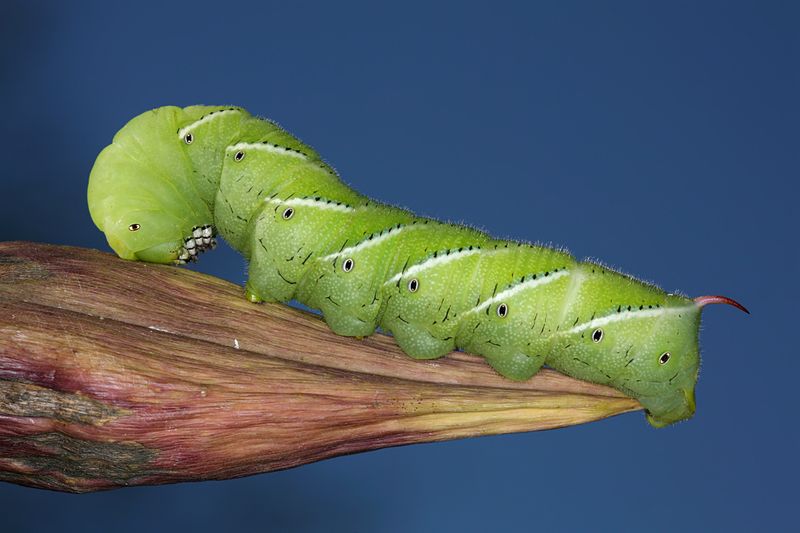Podcast: Play in new window
BOB HIRSHON (host):
The bad-breath defense. I’m Bob Hirshon and this is Science Update.

A large caterpillar called the tobacco hornworm uses something like smoker’s breath to scare hungry spiders. This according to Ian Thomas Baldwin, founding director of the Max Planck Institute for Chemical Ecology in Germany. The tobacco-eating caterpillars consume massive doses of nicotine, which makes them toxic to local wolf spiders. Baldwin’s team discovered that the caterpillars exhale some of that nicotine through tiny holes in its body.
IAN THOMAS BALDWIN (Max Planck Institute for Chemical Ecology):
And so when the spider attacks this caterpillar, it’s getting a faceful of bad breath that’s full of nicotine. That is a sign, for the spider, that it’s going to probably get poisoned if it eats this caterpillar.
HIRSHON:
Baldwin’s team showed that when the caterpillars were rendered incapable of exhaling nicotine, or when they ate bioengineered low-nicotine tobacco, the spiders gobbled them right up. I’m Bob Hirshon for AAAS, the Science Society.
